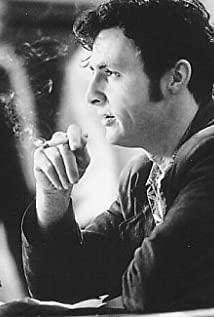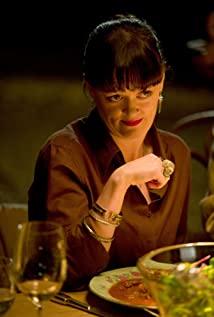In my teenage environment, there seems to be no love at all. But now that I think about it, the argument that there is no love does not mean that there is no love. My hometown is in the central Jiangsu region of eastern China, which is densely populated and very secular. The county where I was born is adjacent to the writer Mr. Wang Zengqi. Just as Mr. Wang wrote about the scenery in his novels and prose, love, in our place, this thing is not so mysterious, and of course it is not so sacred. Love is love. A monk can not only marry a wife, but also cheat, not only cheat, but also have illegitimate children - this is very normal in our place, or it is normal. (I will write about this in another blog)
But the education I received later made me miserable. Life is precious, love is higher. You can sacrifice your life for love, isn't this lifeless love? Life is gone, is there still love? I just don't get it.
Fortunately, there are many works that explain this stuff again and again. Those stories gave me a little understanding of love. I saw a film yesterday, which was translated as "The Heart of the King". In fact, the original film was called "Tristan and Isolde", but the translation of the title caused a disturbance. In a recent interview with the media, Dean, the American screenwriter of the film, said that he was dissatisfied with the Chinese distributor's reckless change of the original title and even wanted to go to court. The Chinese side insisted not to change the translated name. In fact, China has always emphasized that if the name is not correct, the words will not go well. The entanglement of names is the big difference in culture: Chinese people like grand narratives, and even obscure and trivial matters have to come up with "family and country matters"; while foreign countries value human nature, and the individual is the center of the world. The heart of a king means that only benevolent government can win the world, but the foreigner thinks it is very simple, the love of two young people has influenced later generations for many years, and this is enough.
The story is simple and complex. It's easy to say, because in my opinion it's the story of two young men falling in love thousands of years ago in Irish history. It's complicated because the two men, the daughter of the King of Ireland and the - you guessed it, not a commoner - the son of an English nobleman. Well done, right? No no no. Those who know the history of England and Ireland will say that there is a huge gap between them, but it is not completely impossible.
I watched Nandu two days ago, and Hong Kong filmmaker Lin Yihua said in a column that he teaches screenwriting at the University of Hong Kong and likes to come up with a reason and then let students make up stories freely. He thinks it trains the imagination. He thought of one: impossible love. So the students made up a lot: half-siblings (such as blood suspects), terminally ill and normal people, nobles and commoners, a pair of men and women in enemy families (such as "Romeo and Juliet"), even father and successor Female (as in "Isabella"), mother and stepson (as in "The Golden Armor"), student and teacher (as in "Notes on Scandal"), third-party love or affair (as in "Scandal") , and homosexuality and heterosexuality. All in all, the room for imagination is huge. At all times, such stories are ethically challenged and sometimes unethical. These romances have strong conflicts, so they have always been the favorite subjects of ancient and modern literary works.
Tristan and Isolde were originally two young people who naturally fell in love with each other - if that was the case, it would not be possible for them to be passed down through the ages. At that time, there was a deep hostility between Ireland and the counties in England (I don’t know much about this history), and the Irish rulers could go to the county lord’s ruled area from time to time to do something wrong, and the county lords secretly discussed to unite against the Irish ruler. Once he came to Walker County and killed the parents of noble Tristan. Another noble (tentatively called X) took a knife for Tristan, saved his life, and later took him in and raised him. As an adult, Tristan was exceptionally brave, defeating Ireland's most valiant general in a battle, and was poisoned with a knife himself. By chance, he was secretly rescued by the king's daughter Isolde. The two fell in love without knowing each other's identity. This is of course natural love and pure and flawless love.
Love stories have always challenged people's imagination, not to mention the love between two young people who are on the mission of heir to the country! It seems destined from the beginning that love will have twists and turns and sacrifices. But when the twists and turns and sacrifices come in a very unimaginable way, people are often taken aback and wonder if two innocent young people should be given such a responsibility. Contrary to what you might think, it is not because they belong to the camp of the enemy that the resistance of love is extremely powerful and inhuman. This resistance actually comes from providence. When Isolde rescued Tristan, the servant deliberately told her to tell Tristan a false name to protect her. Later, Tristan went to the contest to recruit relatives for the county lord (X), not knowing that he was going to win Isolde. He finally won the contest, knew that the princess was Isolde, and stood there. But unable to hold back the power of faith in the heart. In order to make his promise to the county master, he endured the pain in his heart and refused Isolde's proposal to fly away. He wants to be a man.
"I'll pretend he's you!" Isolde married X in agony, and that's all she could do. They can meet almost every day, one is the queen, the other is the first warrior of the county, but meeting will only aggravate their pain. The only solution is cheating. They could have loved each other openly, but in the end they had to love secretly. Deep down, the man Tristan may have struggled more than the woman Isolde, and he said several times that it couldn't go on. Is this the triumph of reason over emotion? The day when things got out of hand, X found out about their affair and was furious. He cursed Tristan for being dishonest and unfaithful. At this time, the king is leading an army to attack X's county. The homeland may be shattered, but X represents the side of Jun Wang Ren. He listened to Isolde about how Tristan returned his freedom to X after he fell in love with him before X. But Tristan didn't leave. He helped X defeat the enemy, and his own life was on the line. As a man and guardian of his homeland, he has repeatedly performed his responsibilities. But his love is gone, is it worth it? In the end, when he was dying in the arms of his lover Isolde, he began to doubt whether he was taking every step of the way. He said to himself and his lover: I used to think that life was more important than death, but now I know that love is more important than two. Both are important. But it was too late, the lover hugged his cold body and let the river gurgling away beside him.
View more about Tristan + Isolde reviews











